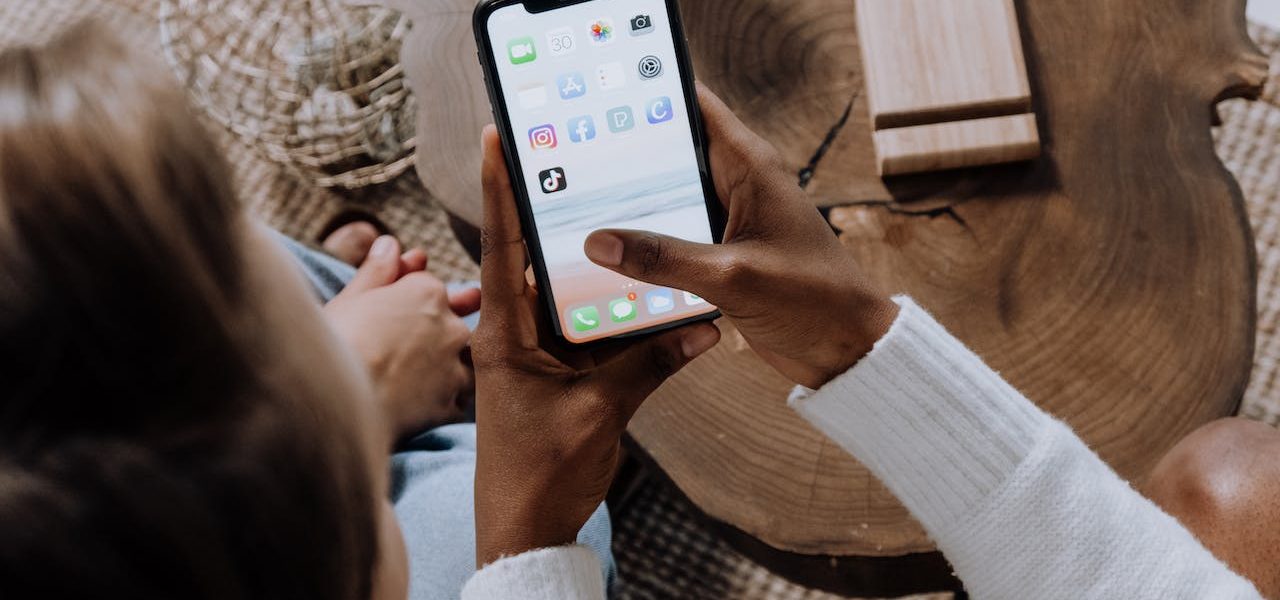Lately, there has been a rise in the use of secret cheating apps that enable affairs or cheating in relationships. These apps allow discreet messaging, photo sharing, and video chat features for people looking to hide communications from their romantic partners. The apps provide a private space to carry out affairs outside of the awareness of one’s spouse or significant other. Of those who met someone using a dating app, almost 70% reported that their meeting resulted in a passionate, committed relationship.
In this article, we will look through the key points of such apps to better understand how they work, why people use them, and how to deal with them.
The Features of Secret Cheating Apps
Secret affair apps tend to offer features tailored specifically to enable discreet communication behind a partner’s back. While mainstream messaging apps focus on public sharing and open profiles, cheating apps optimize for secrecy, privacy, and removing evidence of flirty or explicit exchanges.
Some key features that allow secret communications include:
- Encrypted messaging end-to-end to prevent any third party or partner from snooping on messages
- Self-destructing messages and photos that automatically delete after a preset time to eliminate evidence
- Password protection and passcode locks to prevent unauthorized access to the app and its private content
- Deleted message recovery features in case a user accidentally deletes a secret chat before taking screenshots
- Anonymous and temporary email and phone options to prevent the sharing of real contact information via cheating apps
- Private photo, video, audio, and file exchange functionalities to securely trade explicit media out of sight
- Secret members-only chat rooms and forums for finding other secret partners and facilitating private group chats
- Hidden and obscured app icons that don’t betray the nature of the app to maintain discretion
- Quick exit features to seamlessly hide the app in case of emergency discovery by a partner
- Location spoofing for added discretion regarding users’ whereabouts
- Partner tracking avoidance using app notifications disabling
With powerful encryption securing messages, along with carefully crafted interfaces prioritizing secrecy, cheating apps provide robust private channels enabling extramarital communications and relationships hidden securely out of sight. Their features intentionally facilitate deception, representing a challenge for relationships predicated on openness, honesty, and mutual trust.
So, let’s see what apps do cheaters use to know what to be careful of.
Apps Used for Cheating: How People Hide Those Icons

There are several apps available that can be used for cheating and hiding those icons. These apps usually have a dual purpose – they not only hide the apps, but they also have a legitimate function to make them less obvious.
Some of these common apps include:
- Calculator app: A simple calculator app that looks like any other calculator, but when you enter a specific code, it unlocks a hidden folder where you can store photos, messages, and other apps used for cheating.
- Audio manager app: This app appears to be a regular audio player, but when the user enters a secret code or swipes in a certain pattern, it reveals a hidden vault where they can hide apps and files.
- Vault app: These apps are specifically designed to hide photos, videos, and other files. They often have a decoy icon that leads to a fake vault, while the actual hidden vault is accessed through a secret code or gesture.
- Ghost app: This type of app creates a ghost version of any other app on your phone. The original app is still there but hidden behind the ghost app, making it difficult for someone to find and access it.
- Secret messaging apps: There are numerous cheating apps that allow users to send secret messages that automatically delete after a set amount of time. Cheaters can use these to communicate with their affair partners without leaving any trace on their phones.
It’s important to note that not all of these apps are inherently bad or used solely for cheating purposes. Some people may use them to hide personal information or files that they don’t want others to see. However, the fact that these apps can be easily manipulated and used for cheating highlights the need for further investigation.
Cheating Secret Decoy Apps for Android
Cheating secret decoy apps for Android offer a deceptive cloak of privacy, facilitating concealed communications and stealthy data storage.
For instance, secret calculator apps present themselves as benign tools, but when a password is entered, they reveal hidden chat platforms for clandestine conversations. Similarly, password-protected gallery apps conceal photos and videos, thus preventing prying eyes from uncovering any surreptitious content.
Further, dating apps like Tinder, functioning under the guise of social networking platforms, can potentially enable infidelity, as 46% of online dating users say they have ever used Tinder. The open ecosystem of Android, marked by its flexibility and customization options, makes it considerably easier to hide such apps compared to more restrictive platforms like the iPhone.
Hidden Cheating App Icons iPhone
The iPhone operating system, while often considered more constrained compared to Android, surprisingly offers a multitude of applications that could potentially facilitate infidelity or secret affairs. Encrypted messaging platforms such as WhatsApp, Signal, Telegram, Viber, and Wire are particularly popular among these applications; even so, they can’t be called hidden cheating app icons iPhone.
These apps may not possess concealed icons, but they offer the ability to maintain covert relationships through the use of passcodes and self-deleting messages. Additionally, social media platforms like Facebook and Instagram provide alternative avenues for potential infidelity.
Their private messaging feature, commonly referred to as ‘backchannels’, allows for the clandestine exchange of photographs and discreet conversations.
Addressing Concerns About Hidden Cheating App Icons

Trust is a crucial foundation in any relationship that must be continuously nurtured and maintained. However, when trust is broken due to suspicions of infidelity, it can cause a significant strain on the relationship.
One common way in which people attempt to hide their cheating activities is through hidden app icons on their phones. These apps are designed to look like harmless utilities or games but actually function as a way to communicate and conduct affairs in secrecy.
If you have discovered hidden cheating app icons on your partner’s phone, addressing your concerns with them is essential. Here are some tips on how to effectively communicate about this sensitive issue:
- Remain calm and collected: It can be tempting to confront your partner with anger and accusations immediately, but this approach will only lead to a defensive response. Take some time to process your emotions and approach the conversation calmly and collectedly.
- Express your concerns: Start the conversation by expressing how you feel about the situation. Use “I” statements instead of “you” statements, as they can come off as accusatory. For example, say something like, “I feel hurt and betrayed because I found hidden cheating app icons on your phone.”
- Listen to their perspective: Allow your partner to explain their side of the story without interrupting or getting defensive. This will give you a better understanding of why they chose to use these apps and what led to them feeling the need to keep it a secret.
- Be honest about your boundaries: Let your partner know how their actions have affected you and what boundaries you need to feel secure in the relationship. This could include asking them to delete the apps, being transparent about their phone usage, or seeking counseling together.
Remember, addressing concerns about hidden cheating app icons is not an easy conversation to have, but it is necessary for the health and trust of your relationship. So, make sure to keep an open mind and be willing to work towards rebuilding trust and strengthening your relationship.
Signs Partner is Still Using Hidden Cheating Apps Deceptively
Some red flags that cheating app use is continuing deceptively behind one’s back include:
- Increased secrecy around phone usage: If your partner suddenly becomes more guarded about their phone, such as always keeping it on silent or taking it with them everywhere, this could be a sign that they are still using the cheating apps.
- Unexplained absences or changes in behavior: Is your partner spending more time away from home without a valid reason or exhibiting changes in behavior, such as being more distant or easily agitated? These could be indicators of continued cheating.
- Suspicious app usage on phone bills: If you share a phone bill with your partner and notice unusual spikes in data usage or frequent downloads of new apps, this could be a sign that they are still using the cheating apps.
Remember, these are just some signs that cheating app use may still be happening. So, pay attention to these signs and have open conversations with your partner to ensure the health and honesty of your relationship.
Conclusion
Secret cheating apps catering to infidelity and cheating appear likely to remain an unfortunate reality and relationship challenge. Features that enable private messaging fuel secret relationships; however, there are healthy, productive ways for couples to discuss and address cheating app use openly when it violates committed relationship boundaries.
With empathy, honesty, and willingness to understand the underlying motivations of both parties, you can facilitate forgiveness and positive change.
FAQ
What is Signal app used for cheating?
The Signal app is primarily a secure messaging application that offers end-to-end encryption for messages, voice calls, and video calls. It is designed to protect users’ privacy, but it is not specifically created for cheating. However, it can be used by cheaters to communicate.
Is Viber a dating app?
No, Viber is not a dating app. It is a free messaging and calling app that allows users to connect with friends and family, regardless of their location. While it can be used to meet and communicate with new people, its primary function is not intended for dating or matchmaking.



